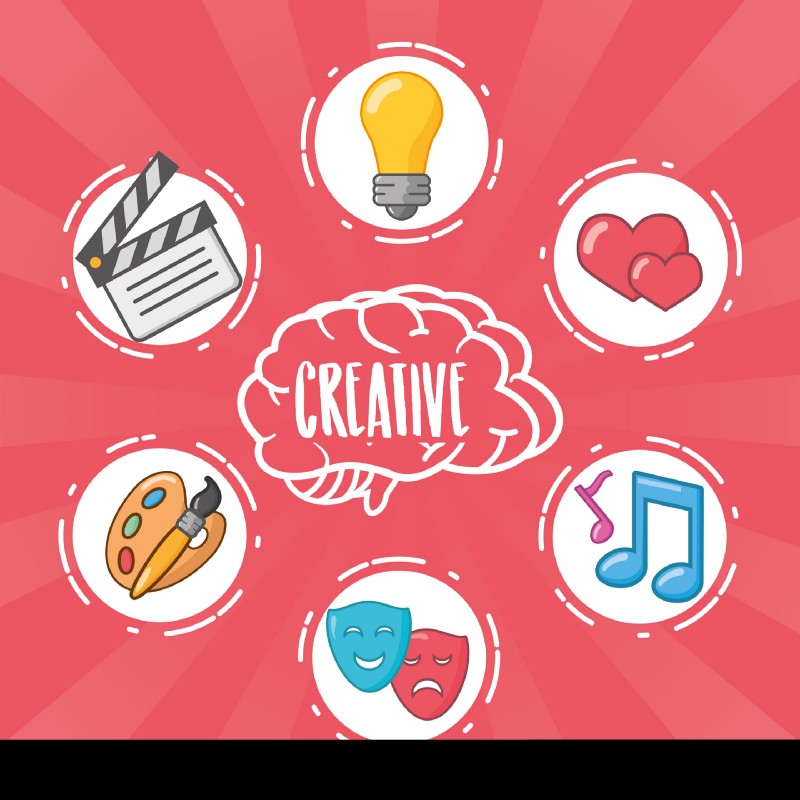Some of the most beautiful inventions in the music world are created with the musician follow the imaginations in his mind. Experts say that the best music is developed, not when you play by following the notes in your knowledge; rather when you follow the ideas.
Many people are interested to know how creativity is associated with music. Many studies reveal that the fundamental concepts of creativity in music are developed from human intelligence. The human brain has a huge ability to engage cognitive abilities to develop something amazing; it works through representation, reasoning, memory ability, association, and self-reflection as well. The superior abilities of the human brain can lead to impressive inventions.
Creativity can be connected to several fields, and it leads to achievement, problem-solving, expert knowledge, intuition, and case studies as well. There are plenty of accomplishments made in the field of history, cognitive science, psychology, and musicology as well.
Spontaneous Musical Creativity in Human Brain
Brain imaging studies are primarily associated with the neurobiology of music processing as well as the perception of the emotions. For the past several years, researchers gave rare consideration to the neuroscientific and psychological studies to analyze musical compositions. The fundamentals were not included in the longitudinal studies as well that are primarily connected to real-time creations and musical scoring. Some researchers put a light in this direction for the first time in the year 2007, and then some studies were initiated to explore the improvised musical materials around the world.
Improvisation as per a Jazz artist is better defined as a dynamic moment where the artist employs some instant decision making for developing new ideas and then integrated it to evolved musical output. When we talk about the cognitive processes, improvisation is be called some spontaneous selection, generation, and execution of advanced auditory-motor sequences. Usually, musicians need to develop unlimited meaningful phrases to complete their creations, and to do this; they combine some finite sets of rhythms and notes. Experts say that those who need to conduct some musical experiments to lead creativity need to set up the right balance between ecological validity and experimental control. Many researchers in the past few years tried to examine the melodic improvisations with classically trained pianists.

Latest developments contributing to musical creativity
As music is the most innovative impression of the human brain, many researchers are trying to imitate this action by following some latest technological advancements. Well, the great news is that artificial intelligence has shown impressive returns in this direction, and it is contributing to the development of amazing music compositions these days. A simple software tool can help musicians to create awesome forms of notes and musical tracks to impress the world. It is possible to step ahead of the human creators and utilize millions of existing notes in a more creative manner to design something new. Even the atmospheric sound can be utilized to create something more impressive.
There is no doubt to say that music plays an important role in human life, and if we find some ways to enhance its quality, it can promise great returns in the long run. Artificial intelligence is now crossing the boundaries, and it has left notable impressions behind.
Artificial Intelligence transforming the music world
There are plenty of ways AI is contributing to the music industry. The conventional computer software program used to work by following some set of instructions from computer programmers. But the AI programs have the ability to learn by themselves. They can be fed with the existing data and follow some dynamic processes for finding out new results. It is now possible to use compressors to record some vocal sounds and then follow unique settings to create new notes ahead. Different compositions can be created by using such chain reactions. It is possible to try things beyond existing presets as AI programs have the ability to learn from past experiences, and they can create some new musical experiences for the future.
AI software has the ability to emulate cognitive skills. They help to analyze a large number of vocal recordings with the help of some mathematical model and can help you create some good impressions for the future by comparing the existing patterns. The new models can be adjusted automatically with specific threshold settings by utilizing past experiences, decision making, and learned skills.
Many big brands in the music industry have already set up some mastering services for developing musical notes. They follow multiband compressions, equalization, and many other processing techniques to lead creativity. The self-learning algorithms can pick the trend of human imaginations that actually turn out into masterpieces in the musical form. Many big artists have tried such compositions in the past few years, and they have obtained great appreciation from the listeners.
AI is also extending its support for audio restoration, and music production. The music sharing and video sharing platforms are now making it easier to spread the creativity around the world. Stats reveal that almost 300 hours of videos are uploaded to YouTube per minute. Other than this, social media platforms are helping to host a huge amount of video content on a routine basis. People love to share and access content through mobile phones, iPods, and tablets. It allows them to follow their favorite content with ease. The human audio engineers are making great inventions in this field, and they are opening new doors for artists in the future.
It is now possible to master, restore, and optimize audio content while ensuring easy processing for all the creative ideas. The cloud-based AI processing engines make it easier to lead music production services. The professionals in the music industry and film industry now find it easier to mix their new ideas with progressive content. Some researchers have created dBounce algorithms to generate real-time feedback for the content spread online. The machine learning models, feature detection algorithms, and rank evaluation methods make it easier to evaluate new inventions.

